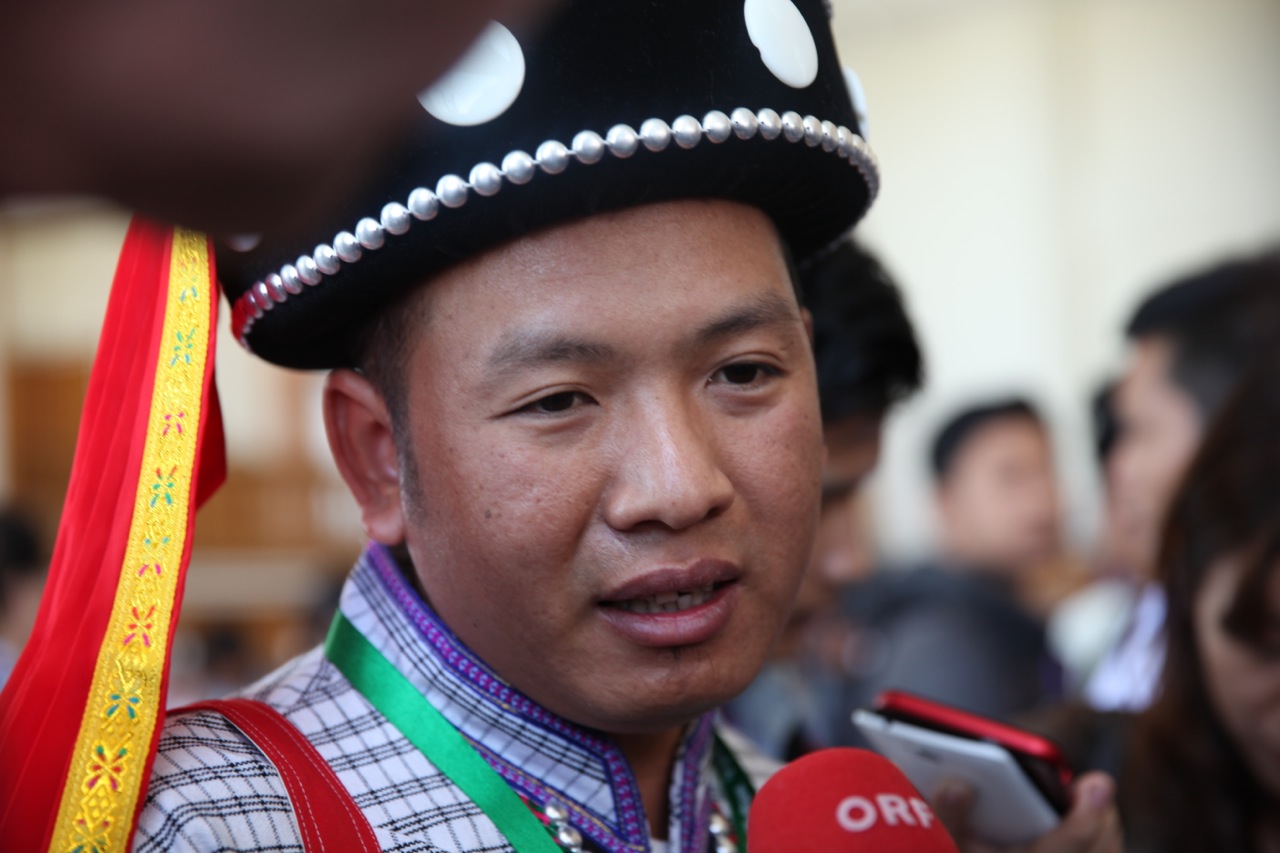The Lisu National Development Party won five constituencies in the 2015 general elections, two seats in the lower house, two seats in the Kachin State parliament and the post of Minister of Lisu Ethnic Affairs in Kachin State. Lar Mar Lay, a 36-year-old lawyer, won a lower house seat in Tsawlaw Township, Kachin State, for the party.
The Lisu are an ethnic minority of several hundred thousand people living mostly in Kachin and Shan states; many adhere to the Christian faith. Due to its relatively small numbers, the group has struggled to defend its interests while being surrounded by bigger ethnic groups in the north of Burma and dealing with the previous Bamar-majority government.
The Lisu do not have an armed rebel group, though some of its people have joined the ethnic Wa, Kachin and Shan rebel groups.
Lar Mar Lay recently spoke to reporter Ei Cherry Aung about his party’s role in the national and Kachin State parliaments, and the issues he wants to prioritise on behalf of the Lisu people.
Question: You are representing the Lisu and won in Tsawlaw Township constituency. Are there many Lisu people in this area?
Answer: People believe I would address their woes in the parliament and so they voted for me. But our party[’s Lisu support base] is smaller than any other [ethnic] parties in this area. It has a population of more than 6,000, among which there are 3,800 eligible voters, only 1,400 of them are Lisu people.
Q: Which issues will you prioritise in parliament?
A: I will discuss Kachin State issues, such as IDPs [internally displaced persons], the peace process, and the poor education and healthcare services in my constituency, as well as the need for amendments to the Constitution.
Q: What did the national and state governments do for the Lisu people in the last five years? And what type of help do Lisu people now expect from the new government?
A: President Thein Sein’s government did not implement any project with special attention for the Lisu people. We expect better rule of law in Chiphwe, Tsawlaw Township, Khaunglanphu, Putao, Myitkyina, Waingmaw and Tanai townships. Two militia groups, government forces and the KIA [Kachin Independence Army] forces have their military camps in Tsawlaw Township. We want to be free from the threats of these armed groups, and be able to enjoy democratic practices.
People are living in poor conditions there. For example, there is no paved road in this area. The living standards are much lower than in Yangon [Rangoon], Mandalay and Naypyidaw. Many grade 4 schoolchildren cannot speak the Myanmar [Burmese] language well. Local people are not accustomed to using a toilet. The area has no landline phones.
Many Lisu people in Shan State and Mandalay Region have also not received citizenship cards. This is a loss of citizenship rights. The incoming government is requested to solve these problems.
Q: Are there any Lisu soldiers in the Kachin and Shan rebel forces?
A: There might be some Lisu soldiers in these forces because some of them might have been forcibly recruited.
Q: What is your initial view of the peace process approach of the NLD government?
A: Most ethnic armed groups have more confidence in the NLD than the outgoing government when it comes to the peace process. But we will have to wait and see whether the military will collaborate with the new administration on the peace issue.
If the new peace process does not live up to expectations of ethnic armed groups, the civil war will continue. But collaboration between the government and the army could reduce these armed clashes.
Q: What is the current situation of the Kachin IDPs?
A: IDPs in the government-controlled areas are being supported by NGOs. Those outside these areas are trying to survive by themselves as NGOs fear working there due to the lack of government security measures. It means that neither the government nor civil society organisations can fully provide humanitarian aid to these IDPs. Only a ceasefire deal could help them return home.
Q: What sort of difficulties will the next government face in the peace process?
A: All the armed groups, including army forces, (pro-government) militias and border guard forces, need to support the government’s efforts on this issue. Each armed group must be counterbalanced through activities to strengthen the rule of law. Law enforcement officers need independent authority to ensure rule of law (in conflict areas).
Q: Which constitutional amendments would you like to see?
A: The state and region’s chief ministers should be elected by the [state and regional] parliament. I oppose that fact the president can directly appoint the chief ministers — this article should be amended.
[related]
Q: What are the main challenges for the incoming government?
A: National reconciliation should be their first priority, and then lasting peace. Armed groups should not have unreasonable demands. For example, Kayin [Karen] leaders should consider the interest of all ethnic people in Kayin State.
Q: Do you think ethnic affairs can be discussed effectively with few ethnic party representatives in parliament?
A: Aung San Suu Kyi has promised that her government will take an approach of national reconciliation, but we will have to wait and see what happens in the parliament.
Q: What are the major obstacles to creating a federal union in Burma?
A: The major problem with this issue is racial discrimination. National leaders should remove any mindset that focuses only on the interest of their own race. Such attitudes will never lead to the establishment of a genuine federal union. A federal army [integrating ethnic rebels with the army] will be the first step for the federal union; such a federal army must involve young talented persons of all races.
This article was first published on 11 February 2016 by Myanmar Now.



